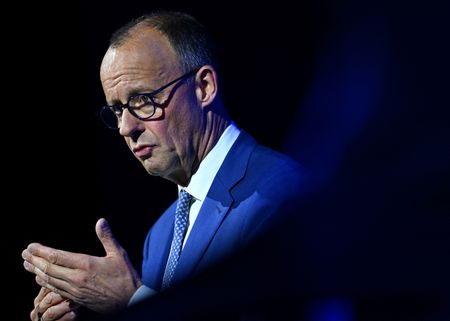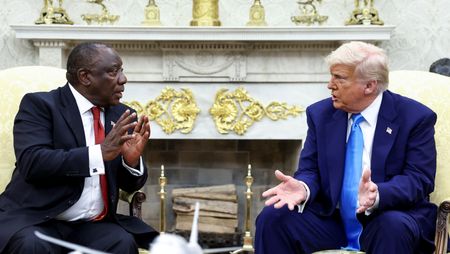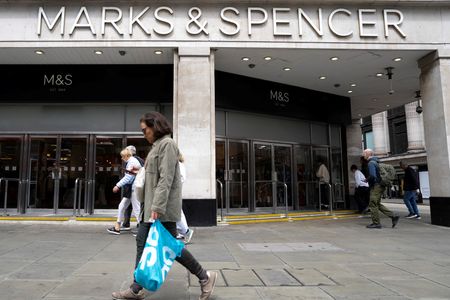By Andreas Rinke and Matthias Williams
BERLIN (Reuters) -German Chancellor Friedrich Merz on Wednesday called for the European Union’s supply chain audit law to be scrapped, though his coalition government’s spokesperson said Berlin wanted to “slim down” the legislation but not abolish it.
Some European leaders worry that the law, which requires larger companies to check if their suppliers use forced labour or cause environmental damage, could hurt the bloc’s ability to compete with the U.S. and China.
Merz’s comments go further on Germany’s stance about the issue than his coalition partner, the Social Democrats (SPD), which wants to retain the law, but it is unclear whether he can get all stakeholders on board to achieve this goal.
French President Emmanuel Macron said this week that the law should be taken “off the table”, 10 days after Merz called for it to be scrapped during his first visit as chancellor to Brussels.
Merz’s spokesperson Stefan Kornelius said on Wednesday that Berlin was in talks with the European Commission, the bloc’s executive, to reform the law.
As part of the EU Commission’s reform efforts to reduce bureaucracy, “the aim is to slim down the supply chain law,” Kornelius added.
Merz, speaking at a construction industry event, repeated calls for it to be scrapped or at least reformed.
“… none of us wants child labour or wants enable it. That we want to uphold working conditions and human rights – no one wants to dispute that, even those who, like me, believe that the national law should be abolished, as should, ideally, the European directive,” Merz said.
“It must be spelled out that we fundamentally trust companies,” he said, adding the EU law must “at least be fundamentally reformed so that… this fundamental mistrust is eliminated.”
Under pressure from France, which circulated a proposal in January to slow down the implementation of green regulations and indefinitely delay the law, the EU Commission had already proposed cuts to the law to reduce red tape for European businesses.
But before France and Germany’s interventions, a full repeal was not on the table, EU diplomats said.
In current form, the EU law would start imposing obligations from 2027 on companies to find and fix human rights and environmental issues in their supply chains.
EU countries are negotiating the proposed changes to the policy, and had hoped to strike a deal in coming months.
The elections in February in Europe’s largest economy however, bringing to power in Germany economic liberal Merz, has shifted the tone of the discourse.
(Reporting by Andreas Rinke, Matthias Williams and Thomas Escritt, writing by Thomas Seythal, Editing by Madeline Chambers and Toby Chopra)










